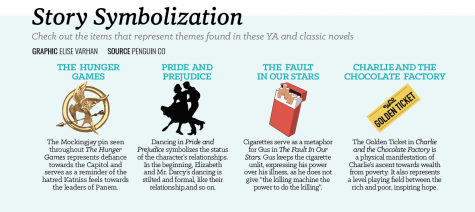By the Book
Don’t judge a book by its genre

These past couple of years, I’ve found myself gravitating ever so gradually toward the literary genres. In middle school, I used to read the young adult (YA) genre vociferously, going through a book a day. Yet this past summer, I realized that I haven’t properly read YA since—middle school. Every time I entertain the notion of picking up a YA novel, I remind myself that there are so many “better” books out there. Why read The Hunger Games when I can educate myself on themes of self-awareness and social class with Pride and Prejudice? Why read Heartless when I can read its inspiration, Alice in Wonderland? Why read City of Bones when I can instead wade through the quagmire of deliciously convoluted sentences that is A Tale of Two Cities?
I don’t think this is an uncommon perspective by any means. People are generally much more impressed if you say your favorite author is Jane Austen rather than, say, Suzanne Collins—and this is with reason to some extent. Classics emerge as classics because they have been vetted through the years as books with beautiful prose or brilliant insight or some fantastical combination of the two.
And yet—dare I say it—the YA genre may have just as much influence, if not more, on the psyche of the individual reader. The key ingredient is fun: When you read a novel purely for fun, any perspectives you consume easily permeate into your own. When you read The Hunger Games, you naturally perceive the socioeconomic stratification of districts to be immoral; there is no persuasion necessary because you weren’t even aware you were being persuaded in the first place. By contrast, when you read a classic like Pride and Prejudice, you go in aware that you are going to learn some deep lesson about socioeconomic class, and that creates a mental roadblock, one that makes you constantly aware of—and thus less susceptible to—thematic ideas.
Classics, of course, have earned their place in history with admittedly universal humanity and timeless themes. Take Pride and Prejudice—this entire article you’ve been reading is about the “pride” we often hold in classic literature and the “prejudice” we often hold against other genres. Yet these themes are to be found not only in classics—whatever the genre, reading is an invaluable way for us to consume knowledge and inform our worldviews.
The views in this column do not necessarily reflect the views of the Acumen staff. Reach Grace Xu at gxu@hilite.org.

